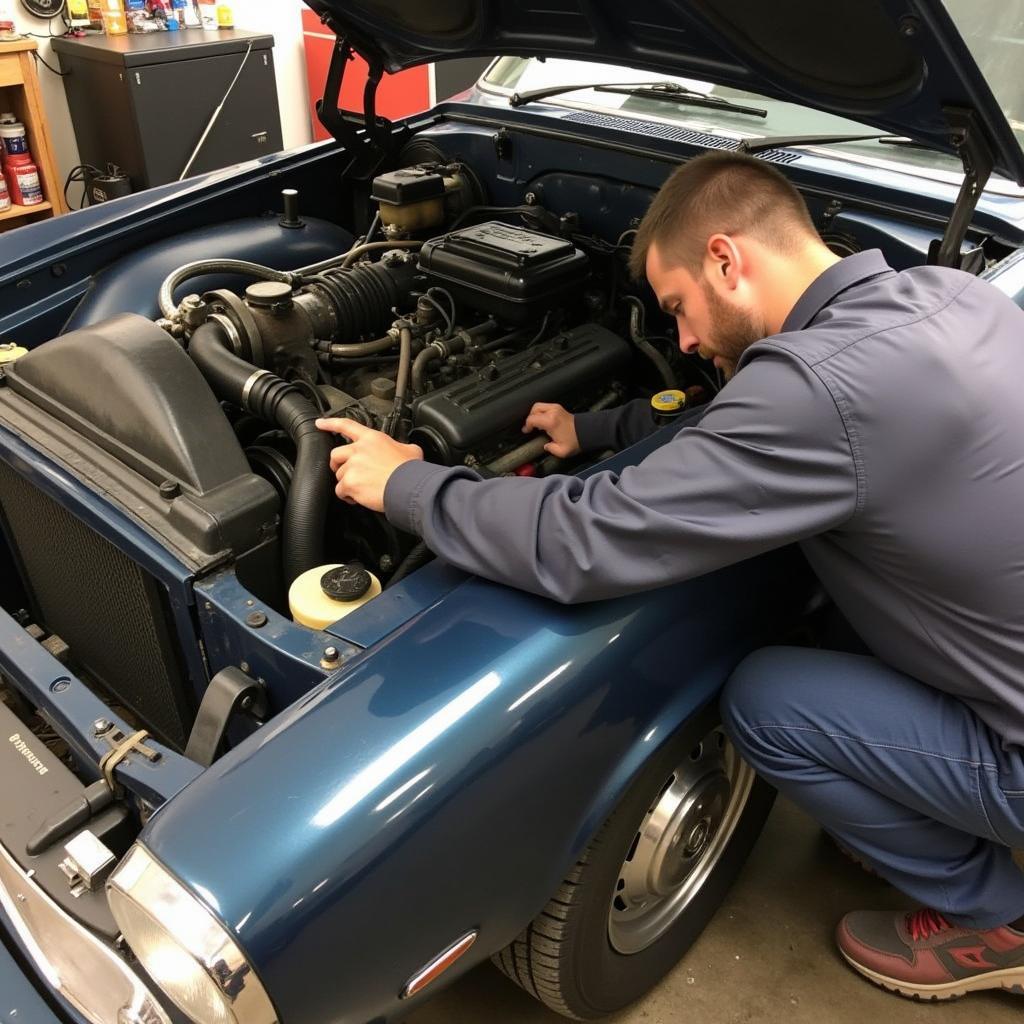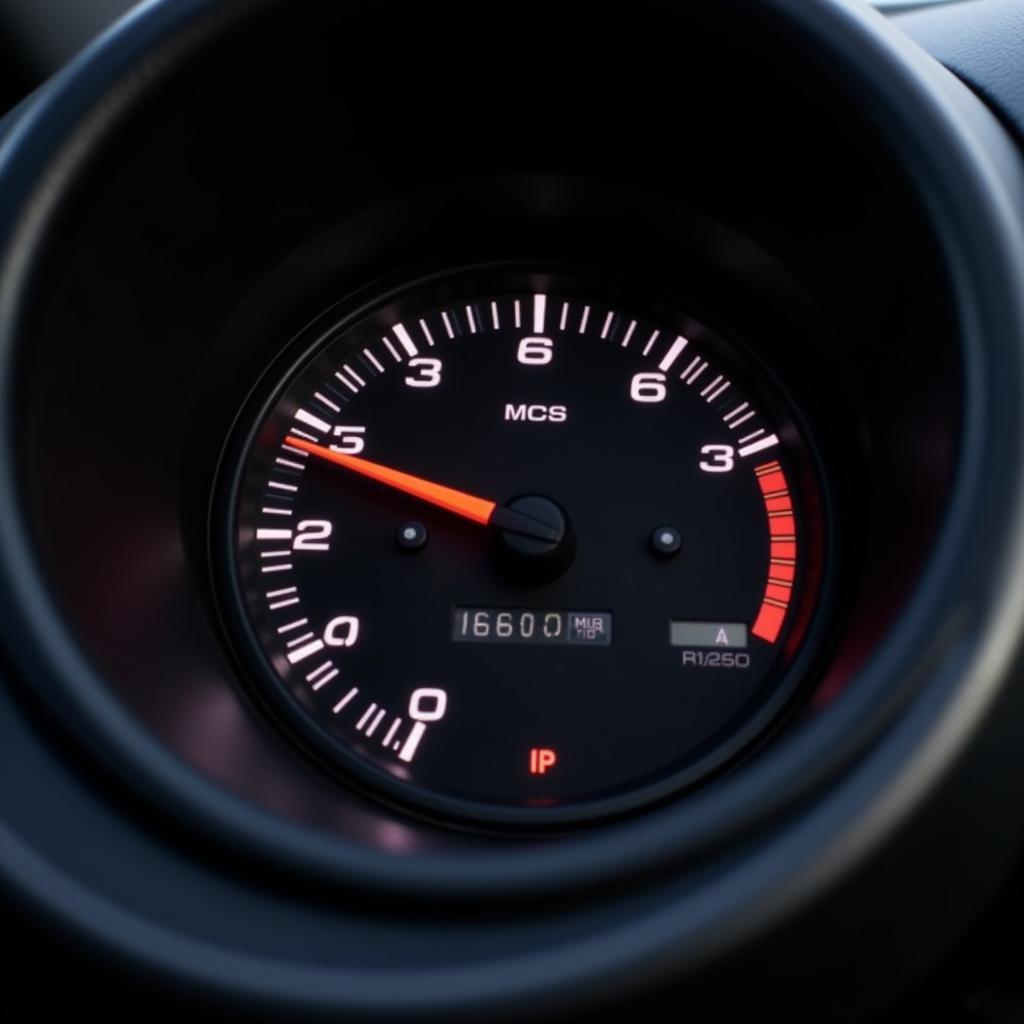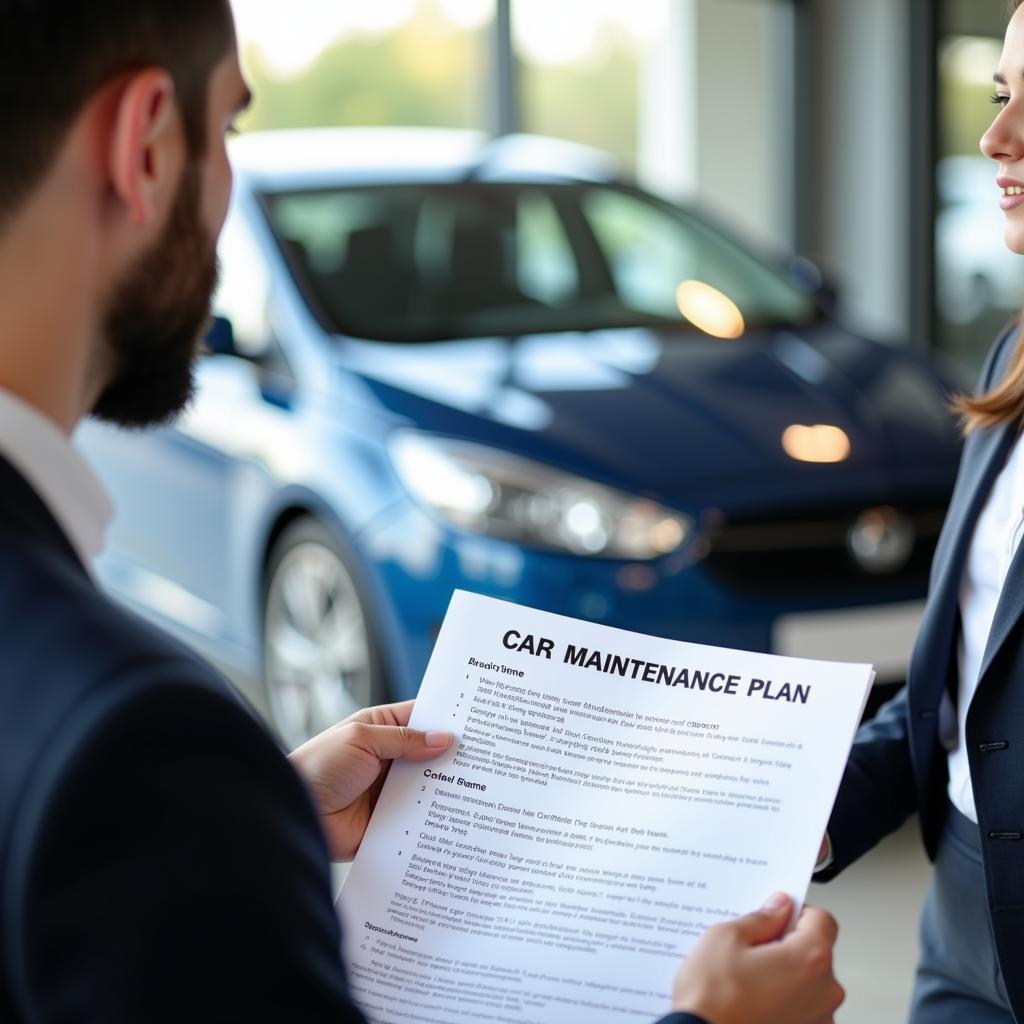Making the decision to sell or fix a 20-year-old car can be a tough one. Factors like the car’s condition, its sentimental value, and your budget all play a role. This article will guide you through the process of evaluating your aging vehicle, weighing your options, and ultimately making the best decision for your situation.
Evaluating Your 20-Year-Old Car
Before deciding whether to sell or fix, you need a clear picture of your car’s condition. A thorough inspection will reveal potential problems and help you estimate repair costs. Consider these key areas:
- Engine and Transmission: Are there any leaks, strange noises, or performance issues? These can indicate costly repairs.
- Brakes and Suspension: How do the brakes feel? Is the ride smooth, or does the car bounce excessively? These systems are crucial for safety.
- Body and Frame: Look for rust, dents, and any signs of previous accidents. Rust can be a major issue, especially in older cars.
- Electrical System: Do all the lights and electronics work correctly? Electrical problems can be tricky and expensive to diagnose.
- Interior: Is the interior in good shape? While cosmetic issues might not be deal-breakers, they can affect resale value.
 Inspecting the engine of a 20-year-old car for potential issues
Inspecting the engine of a 20-year-old car for potential issues
Having a trusted mechanic perform a pre-purchase inspection, even if you’re not buying, can be invaluable. They can provide a professional assessment and estimate repair costs. This information will be essential for making an informed decision.
Should I Sell My 20-Year-Old Car?
Selling a 20-year-old car can be a good option if the repair costs are high or if the car has significant issues. You can explore options like selling it privately, trading it in, or selling it to a junkyard. Consider the following:
- Resale Value: Research the current market value of your car. Websites like Kelley Blue Book can provide estimates.
- Selling Costs: Factor in any costs associated with selling, such as advertising or detailing.
- Time Commitment: Selling a car privately can take time and effort.
If your car is in relatively good condition and the repair costs are manageable, fixing it might be the better choice. Resources like cheap fixer upper cars can help you find affordable repair options.
Should I Fix My 20-Year-Old Car?
Fixing a 20-year-old car can be a worthwhile investment if you’re attached to the vehicle or if it’s still reliable. Consider these factors:
- Repair Costs: Get multiple quotes from reputable mechanics to ensure you’re getting a fair price.
- Future Reliability: Even after repairs, there’s always the possibility of future issues arising with an older car.
- Sentimental Value: If the car has sentimental value, fixing it might be worth the cost, even if it’s not the most financially sound decision. Sometimes, the emotional connection outweighs the practical considerations.
Remember that regular maintenance is key to keeping any car running smoothly, especially an older one. Similar to fixed cars with salvage title for sale, understanding the history of repairs can be crucial in evaluating the long-term viability of keeping your car.
Making the Final Decision: Sell or Fix?
The ultimate decision comes down to weighing the pros and cons of selling versus fixing. Consider your budget, your needs, and the sentimental value of the car. There’s no right or wrong answer. It’s about what makes the most sense for your individual circumstances. Like choosing the best place for fixer upper cars, making an informed decision requires research and careful consideration.
 Spreadsheet comparing the costs of selling versus fixing a 20-year-old car.
Spreadsheet comparing the costs of selling versus fixing a 20-year-old car.
“When deciding whether to sell or fix a 20-year-old car, the biggest factor is often the cost of repairs relative to the car’s value,” says John Smith, a certified automotive technician with over 20 years of experience.
What if My Car Has 160,000 Miles?
High mileage can be a significant factor. If your car has 160,000 miles, it’s likely due for some major repairs. This is where researching resources like 160000 miles used car what will need tobe fixed can be particularly helpful. Knowing what to expect at this mileage can help you budget accordingly.
 Odometer of a 20-year-old car displaying 160,000 miles
Odometer of a 20-year-old car displaying 160,000 miles
“High mileage doesn’t necessarily mean a car is ready for the junkyard,” adds Jane Doe, an automotive consultant. “Proper maintenance can extend the life of a vehicle significantly.” For those considering purchasing a classic car project, exploring resources like buy fixer upper classic car can be a great starting point.
Conclusion
Deciding whether to sell or fix a 20-year-old car requires careful consideration of various factors. By thoroughly evaluating your car’s condition, researching repair costs, and considering your budget and needs, you can make the best decision for your situation. Feel free to connect with us at AutoTipPro for personalized advice and support. Our phone number is +1 (641) 206-8880 and our office is located at 500 N St Mary’s St, San Antonio, TX 78205, United States.
FAQ
- How can I determine the resale value of my 20-year-old car?
- What are the most common repairs needed for cars of this age?
- Where can I find reliable mechanics to assess my car?
- Is it worth fixing a car with a rusted frame?
- How can I find affordable car parts?
- What are the best ways to sell a used car?
- How can I determine if my car is safe to drive?






Leave a Reply